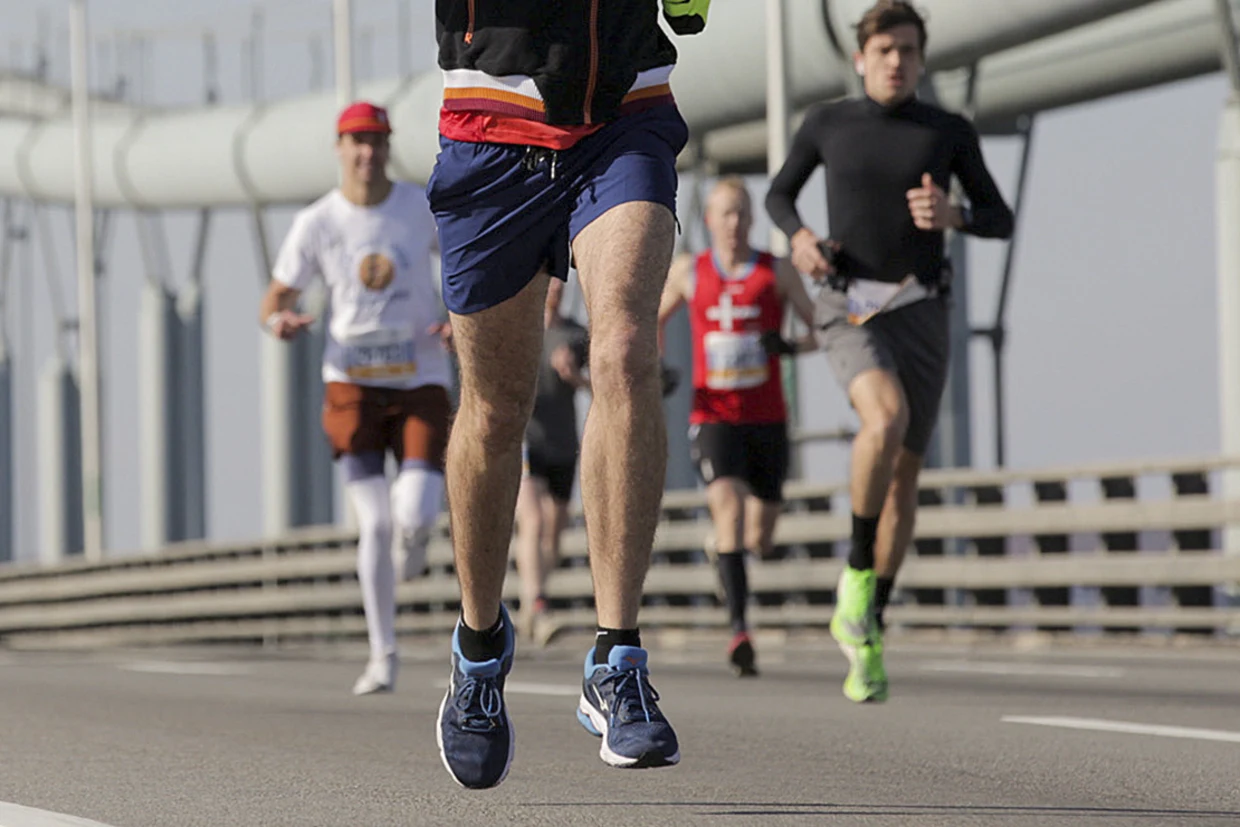Debunking the Myth: Why Running Strengthens Knees (And What Genetics Have to Do With It)
For decades, runners have been warned that their hobby would destroy their knees. But emerging research reveals the opposite: running may protect knee health when done responsibly. Let’s explore the science behind this paradigm shift and how genetics influence your knees’ resilience.
The Running-Knee Myth: Why It’s Wrong
Contrary to popular belief, recreational running is not a risk factor for knee osteoarthritis (OA). In fact:
- Recreational runners have 3x lower rates of hip and knee OA than sedentary individuals1.
- Competitive runners show a 4x reduction in OA risk compared to non-runners1.
- Running stimulates cartilage to thicken and adapt, improving joint lubrication and nutrient delivery78.
The myth likely persists because running temporarily increases knee load (~4–8x body weight per step). However, this stress triggers beneficial adaptations: stronger muscles, denser bones, and more resilient cartilage57.
Running vs. Other Exercises
How does running compare to low-impact activities?
| Exercise | Knee Impact | Key Benefits |
|---|---|---|
| Running | High (dynamic) | Strengthens cartilage, boosts bone density, reduces OA risk15 |
| Cycling | Low | Improves joint mobility, minimal cartilage adaptation |
| Swimming | None | Reduces inflammation, ideal for existing OA1 |
| Strength Training | Variable | Enhances muscle support, reduces injury risk5 |
Running uniquely promotes cartilage health through motion-driven synovial fluid production, which nourishes joints7. However, combining running with strength training (e.g., squats, lunges) maximizes knee resilience5.
The Genetic Edge: Why Some Knees Handle Running Better
Genetics account for ~40% of knee OA risk6, influencing:
- Collagen Integrity
- Cartilage Metabolism
- Inherited OA Risk
- A family history of OA may override running’s protective effects in some cases6. Genetic testing could help identify high-risk individuals.
Common Knee Issues in Runners (And How to Fix Them)
Most running-related knee pain stems from biomechanical issues, not OA:
- Iliotibial Band Syndrome (ITBS)
- Symptoms: Pain on the knee’s outer side.
- Fix: Physical therapy, hip/core strengthening, and gait adjustments5.
- Patellofemoral Pain Syndrome (PFPS)
- Symptoms: Front knee pain from misaligned kneecaps.
- Fix: Quad/hamstring strengthening, orthotic inserts5.
Neither condition typically requires surgery. Addressing muscle imbalances early prevents chronic issues5.
Who Should Be Cautious?
Running may worsen symptoms if you have:
- Pre-existing knee OA (due to cartilage loss)1.
- Untreated ligament/meniscus injuries.
- High-risk genetic variants (e.g., IL-1β overexpression, Sp1 polymorphism)24.
Opt for low-impact activities (e.g., swimming) if pain persists during/after runs1.
5 Rules for Knee-Healthy Running
- Build Fitness First: “Get fit to run, don’t run to get fit” – especially after age 501. Start with walking and strength training.
- Progress Gradually: Increase mileage by ≤10% weekly to avoid overloading joints.
- Strengthen Hips/Quads: Target glutes, hamstrings, and core to stabilize knees.
- Mix It Up: Cross-train with cycling or swimming to reduce repetitive stress.
- Listen to Your Body: Persistent pain? Consult a sports physiotherapist.
Key Takeaways
- Running protects knees in most healthy individuals by strengthening cartilage and muscles.
- Genetics determine how well your knees adapt to running stress.
- Biomechanical issues (not OA) cause most running-related knee pain – and they’re fixable.
So lace up those shoes confidently! With smart training and attention to your body, running can keep your knees strong for decades.
References
- Is Running Bad for Your Knees? Research Says “No”
- Genomic Determinants of Knee Joint Biomechanics
- Effects of Running on Knee Osteoarthritis
- Articular Cartilage Changes in Athletes
- Northwestern Medicine: Running and Joint Health
- Genetics of Knee OA
- Oxford Orthopaedics on Running Benefits
- NYT: Running and Cartilage Adaptation
Citations:
- https://longevity.stanford.edu/lifestyle/2023/08/29/is-running-bad-for-your-knees-research-says-no/
- https://pmc.ncbi.nlm.nih.gov/articles/PMC10888373/
- https://pmc.ncbi.nlm.nih.gov/articles/PMC9983113/
- https://pmc.ncbi.nlm.nih.gov/articles/PMC3874229/
- https://www.nm.org/healthbeat/healthy-tips/fitness/is-running-bad-for-your-knees
- https://www.physio-pedia.com/Runners_and_Knee_Osteoarthritis
- https://oxfordortho.sg/articles/why-running-is-actually-good-for-your-knees/
- https://www.nytimes.com/2020/10/21/well/move/why-running-wont-ruin-your-knees.html






